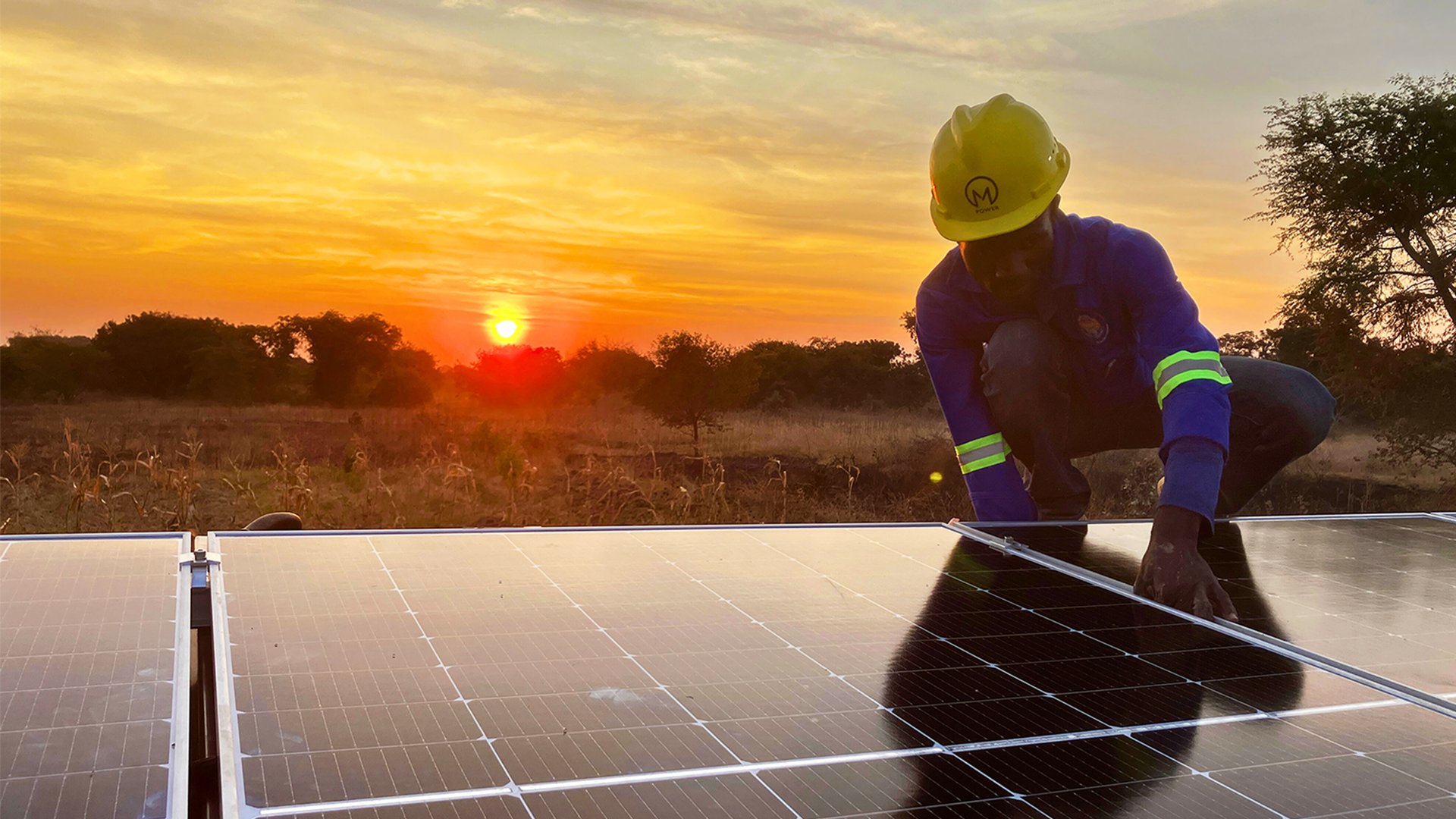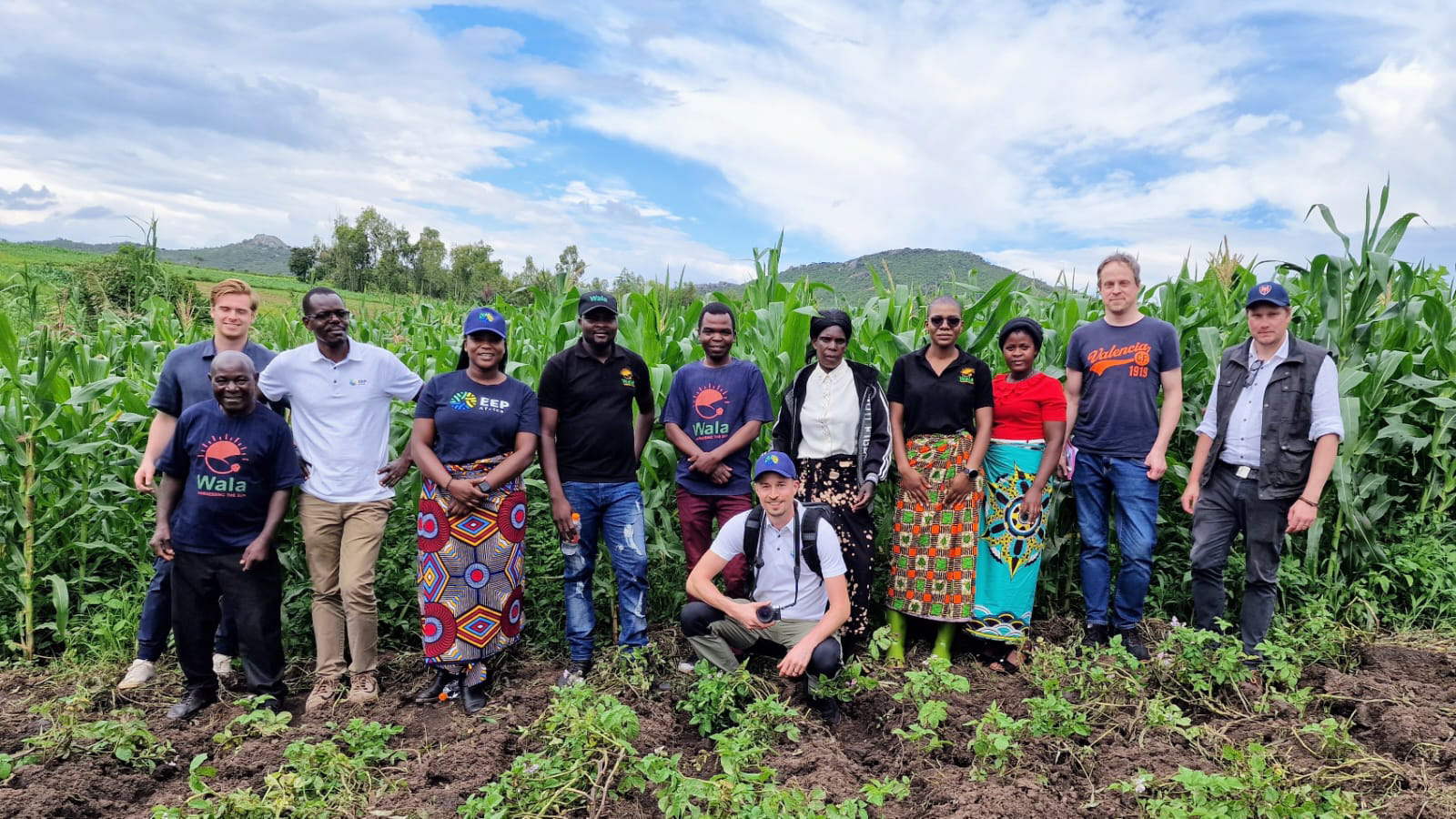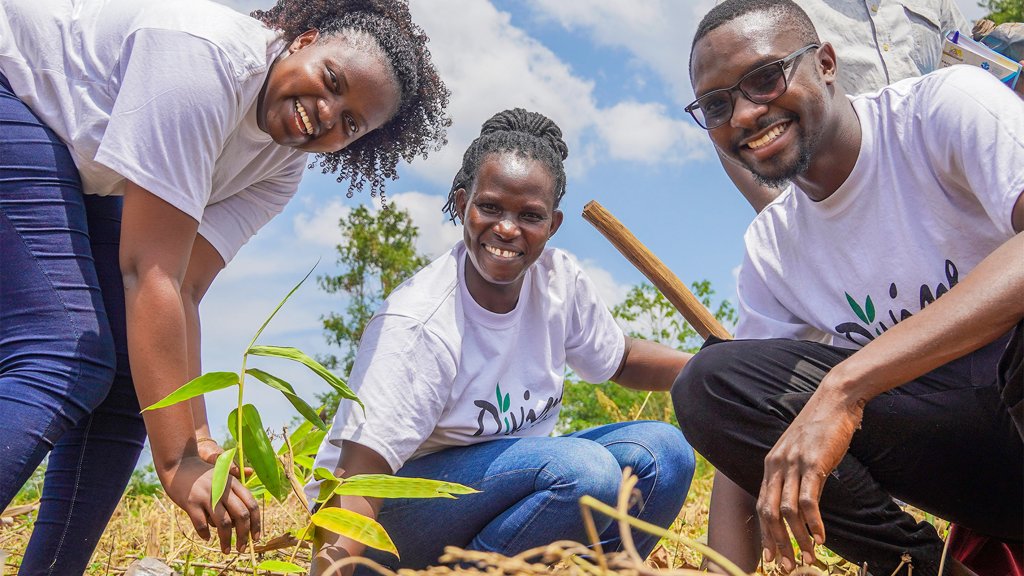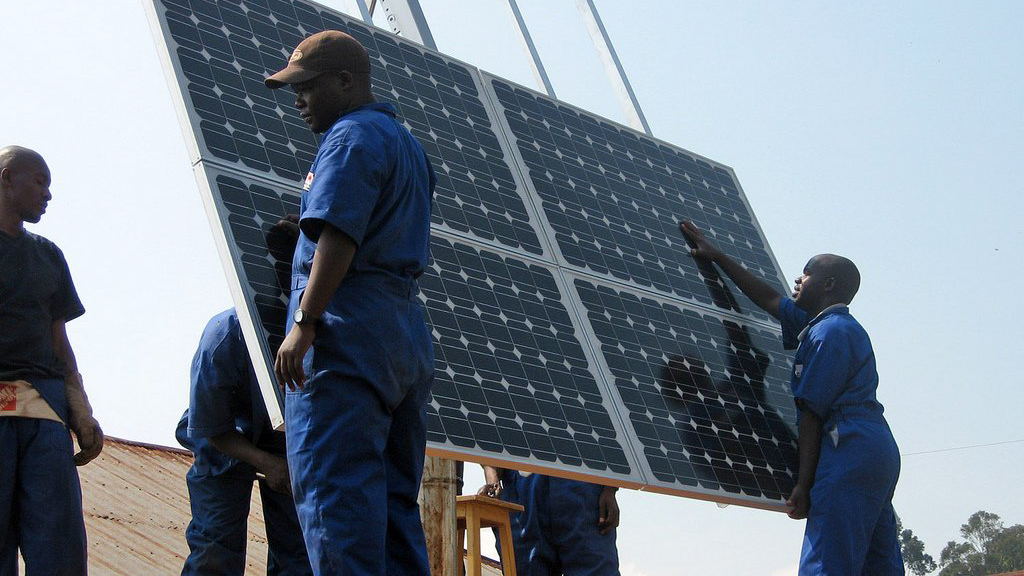600 million Africans without energy are facing a crisis
 To close the energy gap, NDF implements most of its energy-specific projects in Africa. Photo: MPower Ventures
To close the energy gap, NDF implements most of its energy-specific projects in Africa. Photo: MPower Ventures
Most people lacking access to electricity live in Sub-Saharan Africa. This is how NDF adds value in closing the clean energy gap.
This year's theme for the International Day of Clean Energy highlights the urgent need to raise awareness and drive action for a fair and inclusive shift to clean energy, which will benefit both people and the planet.
According to the UN, 685 million people – 4 in 5 are in Sub-Saharan Africa – remain without access to energy and more than 2 billion people worldwide rely on unsafe, and polluting fuels and technologies for cooking.
“Sub-Saharan Africa faces significant challenges in accessing electricity and clean cooking solutions. Yet, the region holds unparalleled potential to leapfrog fossil-fuel-based systems, thanks to abundant renewable energy resources like solar, wind, hydro, and geothermal,” says Jussi Viding, Team Leader of EEP Africa, a renewable energy-focused Trust Fund hosted and managed by NDF.

The Energy and Environment Partnership Trust Fund (EEP Africa) provides early-stage grants and catalytic financing for innovative clean energy projects, technologies, and business models in 17 countries across Southern and Eastern Africa. Jussi Viding (in the middle) is the Team Leader of this trust fund. Photo: EEP Africa
Immediate action is crucial
The science is undeniable: emissions must be cut by nearly half by 2030 and reach net zero by 2050 to prevent the worst effects of climate change.
A shift in energy production is key to the solution. Now is the time to speed up the implementation of renewable energy, which we know can benefit our planet, improve lives, reduce air pollution, and foster economic growth.
With 15 years of experience in climate and development financing as a joint Nordic climate and development finance institution, we are well-positioned to confront this challenge directly. NDF is in a unique position to advance Nordic values and priorities in the global climate finance landscape.
Read more: This is our Nordic Leadership in climate work
From solar mini-grids and biogas systems to e-mobility and clean cooking technologies, learn how we finance projects that support entrepreneurs and organisations in creating transformative solutions in renewable energy, energy efficiency, and energy access.
The most significant share of our financing goes to clean energy
In 2023, we contributed to catalysing EUR 1.4 billion in additional climate finance, the majority of it for the renewable energy sector in Sub-Saharan Africa. Our financing contributed to facilitate close to 12 million clean energy connections, the majority of which was solar, benefitting close to 57 million people living in poverty.
Access to and production of clean energy represents the most significant funding commitments regarding average size for NDF, with a value of EUR 11.6 million. These projects are primarily implemented in Sub-Saharan Africa and are co-financed with other impact-oriented investors, such as development finance institutions (DFIs) and philanthropic and private investors.
Our contribution to bridging the gap
So far, we have contributed to reducing or avoiding 7.5 million tons of carbon dioxide (CO2) equivalent emissions, an important milestone made possible thanks to our strong partnerships and support from our Nordic owners.
For example, we have invested in the Off-Grid Energy Access Fund (OGEF), which is aimed at local entrepreneurs who bring clean energy to people living off the grid. The fund invests in companies that provide products and services to different businesses, spanning from tailors powering their sewing machines and farmers using heat lamps for their chickens to entrepreneurs setting up local cinemas. Several of these companies, such as Yellow Solar, have had a transformative impact on the lives of people in the region.
See how Yellow Solar, one of the earlier beneficiaries, used our catalytic financing to increase its footprint through female leadership and Tier 1 solar home systems in Malawi and across Africa:
Almost all African countries still rely on wood and charcoal to meet basic energy needs, with a major part being consumed by households.
In Uganda, Divine Bamboo, a social enterprise founded by two Ugandan women, aims to deliver energy to more than 10,000 people by scaling up the production of the existing bamboo briquette facility from 120 MT to 2,400 MT annually. Bamboo briquettes burn longer, produce minimal smoke, and are 30% more cost-effective than regular charcoal.
Through Serengeti Energy, we support production of reliable clean energy, reduce greenhouse gas emissions, and mobilise green capital while empowering local communities in Sub-Saharan Africa. The impact is evident: 68% of respondents to a survey conducted by the company reported an improved quality of life thanks to Serengeti’s initiatives.
“Through Serengeti Energy’s activities, my husband has a secure job, and my kids can study more with the solar lights that were provided,” said a local community member.

Most of the energy funding happens through NDF’s blended finance portfolio, which now includes 11 funds, comprising more than 100 underlying portfolio companies– or through our trust fund, EEP Africa. This is a picture of Divine Bamboo – an EEP Africa project. Photo: Divine Bamboo
More energy investments are needed
These impact stories are just a few examples of how NDF works daily to improve people's livelihoods.
Nevertheless, Africa's population is growing quickly, and electricity access expansion is not keeping pace. We are in danger of falling far short of the SDG 7 target of providing affordable, reliable, and sustainable energy for all.
Many more investments in energy are needed – currently, just 3% of global energy investments are directed towards Africa. Through collective action, we can pave the way for a healthier, more sustainable planet for future generations.
"Access to clean energy, combined with training and market activation, presents a transformative opportunity to diversify livelihoods and drive value addition. Done right, it can lift communities out of poverty in a just and inclusive manner," Viding concludes.

Africa holds 60% of the world’s best solar resources, offering a significant opportunity for renewable energy. Photo: Serengeti Energy by Walt Ratterman
